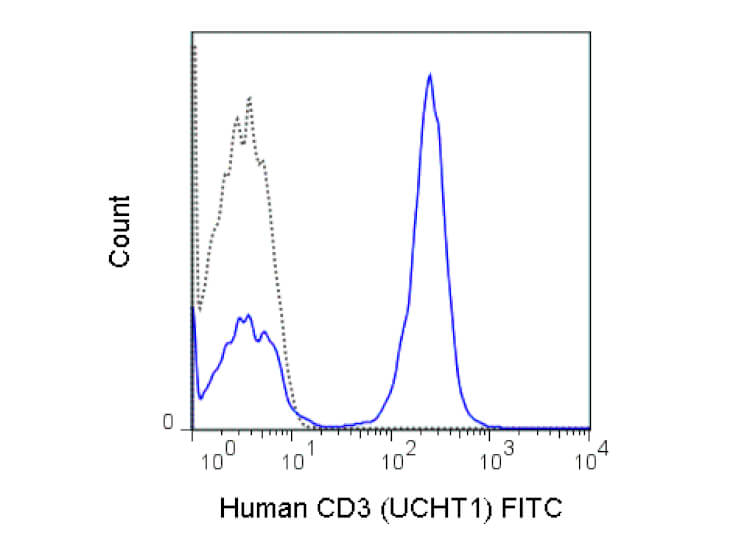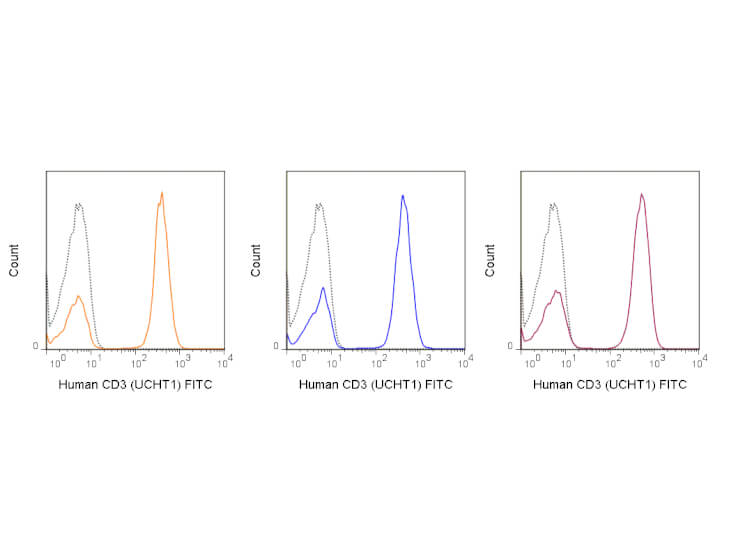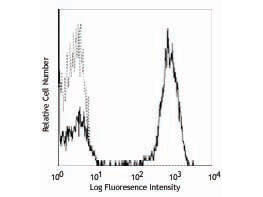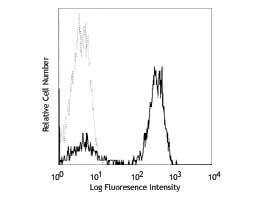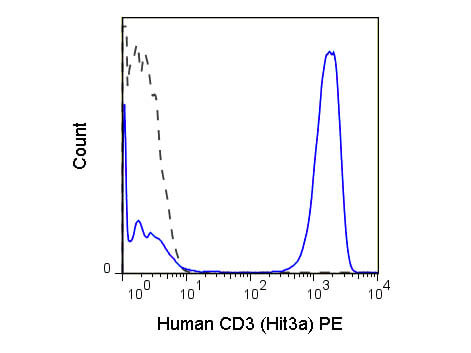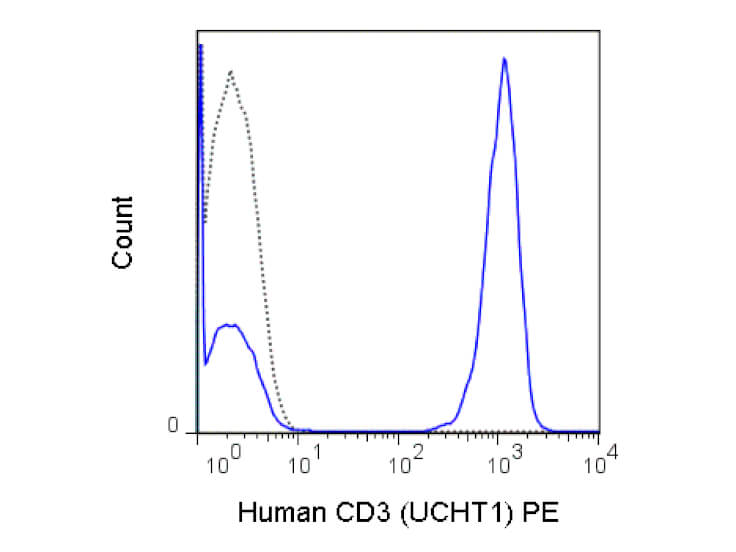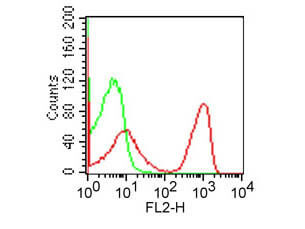Datasheet is currently unavailable. Try again or CONTACT US
CD3 Fluorescein Antibody
Mouse Monoclonal UCHT1 IgG1 kappa
200-302-N14
500 µL
Liquid (sterile filtered)
FC
Human
Mouse
Shipping info:
$50.00 to US & $70.00 to Canada for most products. Final costs are calculated at checkout.
Product Details
Anti-CD3 (MOUSE) Fluorescein Conjugated Monoclonal Antibody - 200-302-N14
T-cell surface glycoprotein CD3 epsilon chain, T-cell surface antigen T3/Leu-4 epsilon chain, CD3e
Mouse
Fluorescein (FITC)
Monoclonal
IgG1
Target Details
CD3E - View All CD3E Products
Human
Anti-CD3 Antibody (Monoclonal) was produced by repeated immunizations with CD3 antigen.
Fluorescein conjugated CD3 Monoclonal Antibody was purified from tissue culture supernatant via affinity chromatography and is directed against human CD3. Reactivity is observed against human and chimpanzee. Cross reactivity with CD3 from other sources has not been tested. Anti-CD3 is conjugated with FITC under optimal conditions and the solution is free of unconjugated FITC.
Application Details
FC
Anti-CD3 has been tested in Flow Cytometry and is useful for Immunoprecipitation and Immunohistochemistry. Researchers should determine optimal titers for applications that are not stated.
Formulation
0.2mg/mL Sufficient to run approximately 100 tests
0.01 M Sodium Phosphate, 0.15 M Sodium Chloride, pH 7.2
0.09% (w/v) Sodium Azide
0.1% Gelatin
Shipping & Handling
Wet Ice
Store vial at 4° C prior to opening. This product is stable for several weeks at 4° C as an undiluted liquid. Dilute only prior to immediate use. DO NOT FREEZE. This product is light sensitive.
Expiration date is six (6) months from date of receipt.
The UCHT1 antibody is specific for human CD3e, also known as CD3 epsilon, a 20 kDa subunit of the T cell receptor complex, along with CD3 gamma and CD3 delta. These integral membrane protein chains assemble with additional chains of the T cell receptor (TCR), as well as CD3 zeta chain, to form the T cell receptor – CD3 complex. Together with co-receptors CD4 or CD8, the complex serves to recognize antigens bound to MHC molecules on antigen-presenting cells. These interactions promote T cell receptor signaling (T cell activation), inducing cell proliferation, differentiation, production of cytokines or activation-induced cell death. CD3 is differentially expressed during thymocyte-to-T cell development and on all mature T cells. The UCHT1 antibody is a widely used phenotypic marker for human T cells. In addition, binding/cross-linking of UCHT1 antibody to CD3e can induce cell activation. A recent publication of the crystal structure of a CD3e- antibody complex provides insight as to the action of commonly used agonist antibodies, as well as specific epitope-binding data for the human CD3 antibodies UCHT1 and OKT3. UCHT1 antibody reacts with both surface-expressed and intracellular CD3e protein, in contrast to an alternative human CD3 clone, HIT3a, which will stain only the extracellular (membrane-expressed) CD3e protein. Also, the UCHT1 antibody is reported to be cross-reactive with chimpanzee and has been used for phenotypic analysis of expression by flow cytometry; however the antibody is reported to be unsuitable for induction of T cell activation in this species.
This product is for research use only and is not intended for therapeutic or diagnostic applications. Please contact a technical service representative for more information. All products of animal origin manufactured by Rockland Immunochemicals are derived from starting materials of North American origin. Collection was performed in United States Department of Agriculture (USDA) inspected facilities and all materials have been inspected and certified to be free of disease and suitable for exportation. All properties listed are typical characteristics and are not specifications. All suggestions and data are offered in good faith but without guarantee as conditions and methods of use of our products are beyond our control. All claims must be made within 30 days following the date of delivery. The prospective user must determine the suitability of our materials before adopting them on a commercial scale. Suggested uses of our products are not recommendations to use our products in violation of any patent or as a license under any patent of Rockland Immunochemicals, Inc. If you require a commercial license to use this material and do not have one, then return this material, unopened to: Rockland Inc., P.O. BOX 5199, Limerick, Pennsylvania, USA.

